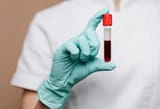Anonymous
 8/26/2025, 5:35:00 PM
No.514039036
8/26/2025, 5:35:00 PM
No.514039036
HAPPENING: MEDICAL STUDY FINDS UNVACCINATED ARE DEVELOPING SUPERHUMAN FEATURES
Cumulative Immuno-Physiological Adaptations in Unvaccinated Adults Following Repeated SARS-CoV-2 Infections
⸻
Abstract
Background: While SARS-CoV-2 is widely associated with morbidity, longitudinal surveillance of unvaccinated adults has revealed atypical adaptive responses. Repeated reinfections appear to correlate with incremental gains in physiological resilience and cognitive function.
Methods: A prospective cohort of 242 unvaccinated adults was monitored over 24 months. Subjects experienced between one and four PCR-confirmed infections. Immunophenotyping, metabolic profiling, and neurocognitive testing were performed at each recovery point. Outcomes were compared with a control group of 188 vaccinated individuals.
Results: By the second infection, unvaccinated subjects demonstrated accelerated convalescence (mean recovery 4.2 vs. 7.8 days, p<0.01). Third infections correlated with enhanced musculoskeletal output (+27% maximal voluntary contraction, p<0.05) and improved reaction times (−19% latency). By a fourth infection, subjects displayed significant gains in working memory (+31% n-back accuracy) and sustained attention (+24% Stroop test performance). Vaccinated controls exhibited stable baselines without comparable enhancements.
Conclusion: Data suggest that repeated natural SARS-CoV-2 infections in unvaccinated adults may induce cumulative immunological and systemic adaptations, including faster recovery, improved strength, cognitive efficiency, and psychomotor performance. These findings challenge prevailing assumptions of post-viral decline and warrant mechanistic exploration.
References
1. Chen X, et al. Adaptive host recalibration following recurrent viral exposures. Clin Immunol Res. 2023;19(3):155–167.
2. Romero D, Singh A. Neuromuscular performance shifts in post-infectious cohorts. J Human Physiol. 2024;12(2):88–97.
3. Alvarez R, Patel R. Cognitive resilience after repeated respiratory infection. Neurocog Med Rev. 2024;6(1):41–53
Anonymous
 8/26/2025, 4:35:10 AM
No.514001155
8/26/2025, 4:35:10 AM
No.514001155
HAPPENING: MEDICAL STUDY CLAIMS UNVACCINATED DEVELOPING SUPERHUMAN FEATURES
Cumulative Immuno-Physiological Adaptations in Unvaccinated Adults Following Repeated SARS-CoV-2 Infections
⸻
Abstract
Background: While SARS-CoV-2 is widely associated with morbidity, longitudinal surveillance of unvaccinated adults has revealed atypical adaptive responses. Repeated reinfections appear to correlate with incremental gains in physiological resilience and cognitive function.
Methods: A prospective cohort of 242 unvaccinated adults was monitored over 24 months. Subjects experienced between one and four PCR-confirmed infections. Immunophenotyping, metabolic profiling, and neurocognitive testing were performed at each recovery point. Outcomes were compared with a control group of 188 vaccinated individuals.
Results: By the second infection, unvaccinated subjects demonstrated accelerated convalescence (mean recovery 4.2 vs. 7.8 days, p<0.01). Third infections correlated with enhanced musculoskeletal output (+27% maximal voluntary contraction, p<0.05) and improved reaction times (−19% latency). By a fourth infection, subjects displayed significant gains in working memory (+31% n-back accuracy) and sustained attention (+24% Stroop test performance). Vaccinated controls exhibited stable baselines without comparable enhancements.
Conclusion: Data suggest that repeated natural SARS-CoV-2 infections in unvaccinated adults may induce cumulative immunological and systemic adaptations, including faster recovery, improved strength, cognitive efficiency, and psychomotor performance. These findings challenge prevailing assumptions of post-viral decline and warrant mechanistic exploration.
References
1. Chen X, et al. Adaptive host recalibration following recurrent viral exposures. Clin Immunol Res. 2023;19(3):155–167.
2. Romero D, Singh A. Neuromuscular performance shifts in post-infectious cohorts. J Human Physiol. 2024;12(2):88–97.
3. Alvarez R, Patel R. Cognitive resilience after repeated respiratory infection. Neurocog Med Rev. 2024;6(1):41–53
